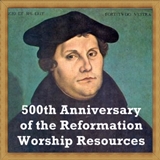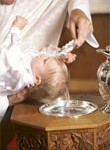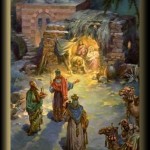HOW THE APOSTLES DIED.
- Matthew
Suffered martyrdom in Ethiopia, killed by a sword wound. - Mark
Died in Alexandria, Egypt, after being dragged by horses through the streets until he was dead. - Luke
Was hanged in Greece as a result of his tremendous preaching to the lost. - John
Faced martyrdom when he was boiled in huge Basin of boiling oil during a wave of persecution In Rome. However, he was miraculously delivered from death.
John was then sentenced to the mines on the prison Island of Patmos. He wrote his prophetic Book of Revelation on Patmos. The apostle John was later freed and returned to serve as Bishop of Edessa in modern Turkey. He died as an old man, the only apostle to die peacefully - Peter
He was crucified upside down on an x-shaped cross.
According to church tradition it was because he told his tormentors that he felt unworthy to die in the same way that Jesus Christ had died. - James
The leader of the church in Jerusalem, was thrown over a hundred feet down from the southeast pinnacle of the Temple when he refused to deny his faith in Christ. When they discovered that he survived the fall, his enemies beat James to death with a fuller’s club.
* This was the same pinnacle where Satan had taken Jesus during the Temptation. - James the Son of Zebedee
A fisherman by trade when Jesus Called him to a lifetime of ministry. As a strong leader of the church, James was beheaded at Jerusalem. The Roman officer who guarded James watched amazed as James defended his faith at his trial. Later, the officer Walked beside James to the place of execution. Overcome by conviction, he declared his new faith to the judge and knelt beside James to accept beheading as a Christian.- Bartholomew
Also known as Nathaniel was a missionary to Asia. He witnessed for our Lord in present day Turkey. Bartholomew was martyred for his preaching in Armenia where he was flayed to death by a whip. - Andrew
Was crucified on an x-shaped cross in Patras, Greece. After being whipped severely by seven soldiers they tied his body to the cross with cords to prolong his agony. His followers reported that, when he was led toward the cross, Andrew saluted it in these words: ‘I have long desired and expected this happy hour. The cross has been consecrated by the body of Christ hanging on it.’ He continued to preach to his tormentors for two days until he expired. - Thomas
Was stabbed with a spear in India during one of his missionary trips to establish the church in the Sub-continent. - Jude
Was killed with arrows when he refused to deny his faith in Christ. - Matthias
The apostle chosen to replace the traitor Judas Iscariot, was stoned and then beheaded. - Paul
Was tortured and then beheaded by the evil Emperor Nero at Rome in A.D. 67. Paul endured a lengthy imprisonment, which allowed him to write his many
epistles to the churches he had formed throughout the Roman Empire. These letters, which taught many of the foundational Doctrines of Christianity, form a large portion of the New Testament.
Perhaps this is a reminder to us that our sufferings here are indeed minor compared to the intense persecution and cold cruelty faced by the apostles and disciples during their times for the sake of the faith.
And you shall be hated for my name’s sake:
But he that endures to the end will be saved.
- Bartholomew
This is a year to celebrate for our Church. We celebrate 175 years of Lutheran worship in Australia.
In the first half of 1838 missionaries and settlers from the Gossner Mission Society in cooperation with a Sydney Presbyterian church, unable to find personnel, were sent to what is now Nundah in suburban Brisbane. History may see its limitations but it was an attempt to witness to the local aboriginal people.
In the second half of 1838 the Dresden Mission Society sent missionaries Shurmann and Teichelmann, followed soon after by missionaries Meyer and Klose to begin a mission school for aboriginal people on the banks of the River Torrens below North Adelaide in South Australia. It closed after some 10 years when Governor Gray declared lessons should all be in English rather than the local Kaurna language of the people.
At the end of the same year Pastor Kavel arrived to set up a Lutheran church in Klemzig village in what is now suburban Adelaide.
31st October 2008
‘This is the anniversary of Luther’s posting of his 95 theses concerning the sale of indulgences. In the sixteenth century various dates were suggested in various places for an annual commemoration of the reform of the church. The Thirty Years War disrupted these observances and provoked anti-Roman sentiment. In 1667, Elector John George II of Saxony reestablished the festival and appointed it for October 31. The celebration of the day spread among Lutherans, but the observance is not widely kept by Protestant Christians, nor is it universal among world Lutherans. It is the only day in the calendar peculiar to the Lutheran church.’
Martin Luther was also a strong advocate of infant Baptism, to this day Lutherans baptise babies.
Personal sin vs. Original sin
Many Evangelicals think “Separation from God” is a result of personal sin and therefore they believe that before the age of reason everyone is bound for heaven. Lutherans believe that humanity’s “Separation from God” is the result of “original sin” from Adam and Eve, our first parents. Lutherans believe we are born into “original sin,” we inherit it. If original sin is the source of our damnation then we are born with it. We don’t think children should be without the grace of Jesus. That is why Lutherans baptise babies “in the name of the Father the Son and the Holy Spirit.”
The Bible says: Surely I was born sinful, a sinner when my mother conceived me. (Psm 51:5)
The word Advent means “coming” or “arrival.” The focus of the entire season is the celebration of the birth of Jesus the Christ in his First Advent, and the anticipat.
The Meaning of Advent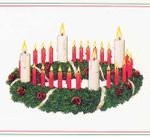
The name Advent comes from the Latin words, advenire (to come to) and adventus (an arrival), and refers to Christ’s coming into this world.
It is that period of the year during which the Church requires the faithful to prepare for the celebration of the feast of Christmas, the anniversary of the birth and coming of Jesus Christ. The mystery of that great day had every right to the honour of being prepared for by prayer and works of penance.
The focus of Advent is by no means limited to just Christ’s first coming. An equal, if not more important theme found in the Advent Liturgy is the Second Coming of Christ when He comes
again to judge the world.
It is somewhat similiar to Lent which prepares us for Easter, the greatest feast in the calendar of the Church. Originally the observance of Advent was made up of fasting and took up forty days as with Lent but was reduced to four weeks. The first allusion to Advent’s being reduced to four weeks is to be found in the ninth century, in a letter of Pope St. Nicholas I to the Bulgarians.
The Greek Church still continues to observe the fast of Advent, though with much less rigour than that of Lent. It consists of forty days, beginning with November 14, the day on which this Church keeps the feast of the apostle St. Philip.
The first Sunday of Advent is the Sunday closest to 30th November, the feast of St Andrew and the fourth Sunday of Advent is the Sunday before 25th December. The First Sunday of Advent falls between November 27 and December 3. The Advent season will thus have between 21 and 28 days, depending upon where this Sunday falls.
The first Sunday of Advent is also the first Sunday of the new Church liturgical year. Advent marks the beginning of the new Church calendar.
The liturgical colour for the season of Advent is purple for purple shows the majesty which heralds the coming of the King of Kings.
Wow, if this doesn’t say it all….
In light of the many jokes we send to one another for a laugh, this is a little different:Â This is not intended to be a joke; it’s not funny, it’s intended to get you thinking.
Billy Graham’s daughter was interviewed on the Early Show and Jane Clayson asked her ‘How could God let something like this happen?’ (regarding Katrina) Anne Graham gave an extremely profound and insightful response. She said, ‘I believe God is deeply saddened by this, just as we are, but for years we’ve been telling God to get out of our schools, to get out of our government and to get out of our lives. And being the gentleman He is, I believe He has calmly backed out. How can we expect God to give us His blessing and His protection if we demand He leave us alone?’
In light of recent events… terrorists attack, school shootings, etc. I think it started when Madeleine Murray O’Hare (she was murdered, her body found a few years ago) complained she didn’t want prayer in our schools, and we said OK. Then someone said you better not read the Bible in school. The Bible says thou shalt not kill, thou shalt not steal, and love your neighbor as yourself. And we said OK.
Then Dr. Benjamin Spock said we shouldn’t spank our children when they misbehave because their little personalities would be warped and we might damage their self-esteem (Dr Spock’s son committed suicide). We said an expert should know what he’s talking about. And we said OK.
Now we’re asking ourselves why our children have no conscience, why they don’t know right from wrong, and why it doesn’t bother them to kill strangers, their classmates, and themselves.
Probably, if we think about it long and hard enough, we can figure it out. I think it has a great deal to do with ‘WE REAP WHAT WE SOW.’
Funny how simple it is for people to trash God and then wonder why the world’s going to hell Funny how we believe what the newspapers say, but question what the Bible says. Funny how you can send ‘jokes’ through e-mail and they spread like wildfire but when you start sending messages regarding the Lord, people think twice about sharing. Funny how lewd, crude, vulgar and obscene articles pass freely through cyberspace, but public discussion of God is suppressed in the school and workplace.
 The Season of Epiphany
Epiphany is the climax of the Advent/Christmas Season and the Twelve Days of Christmas, which are usually counted from the evening of December 25th until the morning of January 6th, which is the Twelfth Day. In following this older custom of counting the days beginning at sundown, the evening of January 5th is the Twelfth Night. This is an occasion for feasting in some cultures, including the baking of a special King’s Cake as part of the festivities of Epiphany (a King’s Cake is part of the observance of Mardi Gras in French Catholic culture of the Southern USA). In some church traditions, only the full days are counted so that January 5th is the Eleventh Day of Christmas, January 6th is the Twelfth Day, and the evening of January 6th is counted as the Twelfth Night.
In traditional Christian churches Christmas, as well as Easter, is celebrated as a period of time, a season of the church year, rather than just a day. The Season of the Church Year associated with Christmas actually begins with the first Sunday of Advent, four Sundays before Christmas Day. Advent is marked by expectation and anticipation in preparing to celebrate the coming of Jesus. Christmas begins with Christmas Day December 25 and lasts for Twelve Days until Epiphany, January 6, which looks ahead to the mission of the church to the world in light of the Nativity. The one or two Sundays between Christmas Day and Epiphany are sometimes called Christmastide. For many Protestant church traditions, the season of Epiphany extends from January 6th until Ash Wednesday, which begins the season of Lent leading to Easter. Depending on the timing of Easter, this longer period of Epiphany includes from four to nine Sundays. Other traditions, especially the Roman Catholic tradition, observe Epiphany as a single day, with the Sundays following Epiphany counted as Ordinary Time. In some western traditions, the last Sunday of Epiphany is celebrated as Transfiguration Sunday.
The term epiphany means “to show” or “to make known” or even “to reveal.” In Western churches, it remembers the coming of the wise men bringing gifts to visit the Christ child, who by so doing “reveal” Jesus to the world as Lord and King. In some Central and South American countries influenced by Catholic tradition, Three Kings’ Day, or the night before, is the time for opening Christmas presents. In some eastern churches, Epiphany or the Theophany commemorates Jesus’ baptism, with the visit of the Magi linked to Christmas. In some churches the day is celebrated as Christmas, with Epiphany/Theophany occurring on January 19th.
The colors of Epiphany are usually the colors of Christmas, white and gold, the colors of celebration, newness, and hope that mark the most sacred days of the church year. In traditions that only observe a single day for Epiphany, the colors are often changed after Epiphany to the colors of Ordinary Time, usually green or thematic sanctuary colors, until Transfiguration Sunday, the last Sunday before the beginning of Lent. The colors for Transfiguration Sunday are usually the colors of Holy Days, white and gold.
As with most aspects of the Christian liturgical calendar, Epiphany has theological significance as a teaching tool in the church. The Wise Men or Magi who brought gifts to the infant Jesus were the first Gentiles to acknowledge Jesus as “King” and so were the first to “show” or “reveal” Jesus to a wider world as the incarnate Christ. This act of worship by the Magi, which corresponded to Simeon’s blessing that this child Jesus would be “a light for revelation to the Gentiles” (Luke 2:32), was one of the first indications that Jesus came for all people, of all nations, of all races, and that the work of God in the world would not be limited to only a few.
The day is now observed as a time of focusing on the mission of the church in reaching others by “showing” Jesus as the Savior of all people. It is also a time of focusing on Christian brotherhood and fellowship, especially in healing the divisions of prejudice and bigotry that we all too often create between God’s children.
What is Ash Wednesday
Question: “What is Ash Wednesday?”Ash Wednesday is the day Lent begins. It occurs forty days before Good Friday. The official name of Ash Wednesday is “Day of Ashes.†The reason the day became known as Ash Wednesday is that it is forty days before Good Friday, so it will always fall on a Wednesday. The Bible does not mention Ash Wednesday, or Lent either, for that matter.
Answer:
The period of Lent is intended to be a time where sinful activities and habits are forsaken. Ash Wednesday is the commencement of this period of repentance. The Bible contains numerous accounts of people using dust and ashes as symbols of repentance and/or mourning (Genesis 18:27; 2 Samuel 13:19; Esther 4:1; Job 2:8; Daniel 9:3; Matthew 11:21). The tradition is that the symbol of the cross is made in ashes on a person’s forehead as a symbol of that person’s identification with Jesus Christ. A similar concept is mentioned in Revelation 7:3; 9:4; 14:1 and 22:4.
Should a Christian observe Ash Wednesday? Ash Wednesday, along with Lent, is observed by most Catholics, most orthodox denominations, and a few Protestant denominations. Since the Bible nowhere commands or condemns such a practice, Christians are at liberty to prayerfully decide whether to observe Ash Wednesday or not. If a Christian decides to observe Ash Wednesday and/or Lent, the important thing is to have a biblical perspective. It is a good thing to repent of sinful activities, but this is something Christians should do every day, not just during Lent. It is a good thing to clearly identify yourself as a Christian, but again this is an ongoing identification. It is unbiblical to believe that God will automatically bless in response to the observance of a ritual. God is interested in our hearts, not in us observing rituals.
The Season of Lent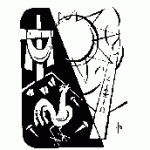
Lent is a forty-day season of preparation for the death and resurrection of Jesus Christ on Easter Sunday. The season begins on Ash Wednesday, when pastors mark the foreheads of Christians with ashes as a reminder that we are created from dust and to dust we shall return.
During Lent we follow Jesus from his adult ministry through his suffering during Holy Week to his crucifixion and death on Good Friday. And we read the Psalms that foretold what happened during that week.
Holy Week begins with Palm Sunday, also called the Sunday of the Passion, and continues through Holy Thursday (when Holy Communion was instituted at the Last Supper) and Good Friday, when Jesus was tried, crucified, and buried.
Because the Last Supper was celebrated during the Feast of the Passover, which is calculated on the phases of the moon, Easter is called a movable feast. Lent is scheduled backwards from Easter. Easter falls on the first Sunday after the full moon after the spring equinox. The forty days of fasting and penitence during Lent do not include Sundays. Christians always celebrate Sunday as the day Jesus rose from the dead, so it is never a day of fasting.
Many Northern Europeans celebrate the day before Ash Wednesday, mardi gras (French for Fat Tuesday, also called Shrove Tuesday), by eating up everything good in the house that medieval Christians believed was inappropriate to eat during Lent (eggs, butter, cream, meat). This celebration has expanded into all sorts of festivals all over the world, although most modern Christians do eat some – or all – of those foods during Lent.
Lent is a time of stripping down to essentials, as each Christian focuses on his or her individual relationship with God. It is a time when Christians remember our baptisms, when Jesus washed away our sins, giving us newness of life to celebrate in the triumph of Palm Sunday and the glory of Easter. Many early Christians were baptized on Easter Sunday, so Lent became a special time of study and prayer in preparation for their baptisms. Later the entire congregation joined in the study and prayer as they looked forward to the anniversary of their baptisms on Easter.
Because Lent is a time of letting go of the bondage of sin, it is also a time of celebrating the freedom from the bondage of slavery. At the Feast of the Passover, all Jews give thanks for their freedom from the captivity of the Egyptians.
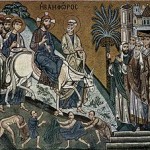 PALM SUNDAY
PALM SUNDAY
In many Christian churches, Palm Sunday is marked by the distribution of palm leaves (often tied into crosses) to the assembled worshipers. The difficulty of procuring palms for that day’s ceremonies in unfavorable climates for palms led to the substitution of boughs of box, yew, willow or other native trees. The Sunday was often designated by the names of these trees, as Yew Sunday or by the general term Branch Sunday.
According to the Gospels, before entering Jerusalem, Jesus was staying at Bethany and Bethphage, and the Gospel of John adds that he had dinner with Lazarus, and his sisters Mary and Martha. While there, Jesus is described by the Synoptic Gospels as sending two unnamed disciples to the village over against them, in order to retrieve a donkey that had been tied up but never been ridden, and to say, if questioned, that the donkey was needed by the Lord but would be returned in a short period of time. Jesus then rode the donkey into Jerusalem, with the Synoptics adding that the disciples had first put their cloaks on it, so as to make it more comfortable. The Gospels go on to describe how Jesus rode into Jerusalem, and how the people there lay down their cloaks in front of him, and also lay down small branches of trees. The people are also described as singing part of Psalm 118 – …Blessed is He who comes in the name of the Lord. Blessed is the coming kingdom of our father, David. … (Psalms 118:25-26). Where this entry is supposed to have taken place is unspecified; some scholars argue that the Golden Gate is the likely location, since that was where it was believed the Jewish messiah would enter Jerusalem; other scholars think that an entrance to the south, which had stairs leading directly to the Temple, would be more likely (Kilgallen 210). According to Jewish tradition (Sefer ha Zohar, part about donkey driver) the one who is able to bridle and ride a colt (or donkey) has a status of Messiah.
Question: “What is Maundy Thursday?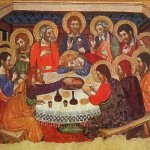 “
“
Maundy Thursday, also known as “Holy Thursday†is the Thursday of Passion Week, one day before Good Friday (the Thursday before Easter). Maundy Thursday is the name given to the day on which Jesus celebrated the Passover with His disciples, known as the Last Supper. Two important events are the focus of Maundy Thursday.
First, Jesus celebrated the Last Supper with His disciples and thereby instituted the Lord’s Supper, also called Communion (Luke 22:19-20). Some Christian churches observe a special Communion service on Maundy Thursday in memory of Jesus’ Last Supper with His disciples. Second, Jesus washed the disciples’ feet as an act of humility and service, thereby setting an example that we should love and serve one another in humility (John 13:3-17). Some Christian churches observe a foot-washing ceremony on Maundy Thursday to commemorate Jesus’ washing the feet of the disciples.
The word “Maundy†is derived from the Latin word for “command.†The “Maundy†in Maundy Thursday refers to the command Jesus gave to the disciples at the Last Supper, that they should love and serve one another. Should we observe Maundy Thursday? The Bible neither commands nor forbids it. It is a good thing to remember the Last Supper and Jesus’ sacrifice on our behalf. It is a good thing to remember the Lord’s example of humility. However, at the same time, we should avoid ritualistic observances of holidays unless they are truly focused on God and our relationship with Him.
Question: “What is Good Friday?”
 Answer: Good Friday is the Friday immediately preceding Easter Sunday. It is celebrated traditionally as the day on which Jesus was crucified. If you are interested in a study of the issue, please see our article that discusses the various views on which day Jesus was crucified. Assuming that Jesus was crucified and died on a Friday, should Christians remember Jesus’ death by celebrating Good Friday?
Answer: Good Friday is the Friday immediately preceding Easter Sunday. It is celebrated traditionally as the day on which Jesus was crucified. If you are interested in a study of the issue, please see our article that discusses the various views on which day Jesus was crucified. Assuming that Jesus was crucified and died on a Friday, should Christians remember Jesus’ death by celebrating Good Friday?
The Bible does not instruct Christians to remember Christ’s death by honoring a certain day. The Bible does give us freedom in these matters, however. Romans 14:5 tells us, “One man considers one day more sacred than another; another man considers every day alike. Each one should be fully convinced in his own mind.†Rather than remembering Christ’s death on a certain day, once a year, the Bible instructs us to remember Christ’s death by observing the Lord’s Supper. First Corinthians 11:24-26 declares, “…do this in remembrance of me…for whenever you eat this bread and drink this cup, you proclaim the Lord’s death until he comes.â€
Why is Good Friday referred to as “goodâ€? What the Jewish authorities and Romans did to Jesus was definitely not good (see Matthew chapters 26-27). However, the results of Christ’s death are very good! Romans 5:8, “But God demonstrates his own love for us in this: While we were still sinners, Christ died for us.†First Peter 3:18 tells us, “For Christ died for sins once for all, the righteous for the unrighteous, to bring you to God. He was put to death in the body but made alive by the Spirit.â€
Many Christian churches celebrate Good Friday with a subdued service, usually in the evening, in which Christ’s death is remembered with solemn hymns, prayers of thanksgiving, a message centered on Christ suffering for our sakes, and observance of the Lord’s Supper. Whether or not Christians choose to “celebrate†Good Friday, the events of that day should be ever on our minds because the death of Christ on the cross is the paramount event of the Christian faith.
Question: “What is Easter Sunday?”
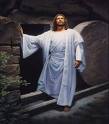 There is a lot of confusion regarding what Easter Sunday is all about. For some, Easter Sunday is about the Easter Bunny, colorfully decorated Easter eggs, and Easter egg hunts. Most people understand that Easter Sunday has something to do with the resurrection of Jesus, but are confused as to how the resurrection is related to the Easter eggs and the Easter bunny.
There is a lot of confusion regarding what Easter Sunday is all about. For some, Easter Sunday is about the Easter Bunny, colorfully decorated Easter eggs, and Easter egg hunts. Most people understand that Easter Sunday has something to do with the resurrection of Jesus, but are confused as to how the resurrection is related to the Easter eggs and the Easter bunny.
Biblically speaking, there is absolutely no connection between the resurrection of Jesus Christ and the common modern traditions related to Easter Sunday. As a background, please read our article on the origins of Easter. Essentially, what occurred is that in order to make Christianity more attractive to non-Christians, the ancient Roman Catholic Church mixed the celebration of Jesus’ resurrection with celebrations that involved spring fertility rituals. These spring fertility rituals are the source of the egg and bunny traditions.
The Bible makes it clear that Jesus was resurrected on the first day of the week, Sunday (Matthew 28:1; Mark 16:2,9; Luke 24:1; John 20:1,19). Jesus’ resurrection is most worthy of being celebrated (see 1 Corinthians 15). While it is appropriate for Jesus’ resurrection to be celebrated on a Sunday, the day on which Jesus’ resurrection is celebrated should not be referred to as Easter. Easter has nothing to do with Jesus’ resurrection on a Sunday.
As a result, many Christians feel strongly that the day on which we celebrate Jesus’ resurrection should not be referred to as “Easter Sunday.” Rather, something like “Resurrection Sunday” would be far more appropriate and biblical. For the Christian, it is unthinkable that we would allow the silliness of Easter eggs and the Easter bunny to be the focus of the day instead of Jesus’ resurrection.
By all means, celebrate Christ’s resurrection on Easter Sunday. Christ’s resurrection is something that should be celebrated every day, not just once a year. At the same time, if we choose to celebrate Easter Sunday, we should not allow the fun and games to distract our attention from what the day should truly be all about—the fact that Jesus was resurrected from the dead, and that His resurrection demonstrates that we can indeed be promised an eternal home in Heaven by receiving Jesus as our Savior.
What does the Bible say about the ascension of  Christ?
Christ?
What does the Bible say about the ascension of Christ? The Bible describes the ascension of Christ in a scene told both by Luke and by Mark. The scene portrays meaning to the believer and is supported by other Scripture, as well. It is really a very poignant picture when you think upon its meanings.
The ascension communicates Christ’s glorification. Jesus’ work here was done. Mark says, “After the Lord Jesus had spoken to them, he was taken up into heaven and he sat at the right hand of God” (Mark 16:19). The scene communicates that He was leaving earth in His bodily form and that He was going to His former place of glory, having won victory over death (John 17:5).
Jesus’ ascension brought to an end the time of His ministry as God in man. And it began the time of His ministry as God in man, the church. God would minister through His Word and His ministers in the church. The church is Christ’s body in the earth (Ephesians 5:30; 4:15-16). The ascension forms the point of continuity between “all that He began to do and to teach (Acts 1:1), and what the apostles and the church continued to do and to teach after His departure.
Another essential truth concerning Christ’s ascension is that He ascended on High with His own blood to make atonement for the sins of men (Hebrews 2:7).
As High Priest forever, He went before the eternal mercy seat – as the Old Testament High Priest went into the Holy of Holies once a year to make atonement for the sins of Israel – Jesus made atonement once and for all in the tabernacle not man-made (Hebrews 9:11-12). Having obtained eternal redemption for all who would believe in Him, He sat down in His glory. He took His place as supreme authority, whose throne we may now approach “with confidence, so that we may receive mercy and grace to help in our time of need” (Hebrews 4:16). A new covenant has been ratified between God and man, sealed by the blood of a righteous man, God’s own Lamb.
His ascension meant that He would send the Holy Spirit to dwell in believers, taking the place of His bodily presence, and continuing what He had done while here (John 14:16-17; 16:5-7). “All this I have spoken while still with you. But the Counselor, the Holy Spirit, whom the Father will send in my name, will teach you all things and will remind you of everything I have said to you” (John 14:25-26). And, “He will bring glory to me by taking from what is mine and making it known to you” (John 16:14). Jesus lives in believers by God’s Spirit and continues His work in them and through them.
His disappearance into the clouds bore also the promise of Christ’s return. Luke reports in Acts1:11: “‘Men of Galilee,’ they said, ‘why do you stand here looking into the sky? This same Jesus, who has been taken from you into heaven, will come back in the same way you have seen him go into heaven.'”
Paul explains in I Thessalonians 4:16-17 that “For the Lord himself will come down from heaven, with a loud command, with the voice of the archangel and with the trumpet call of God, and the dead in Christ will rise first. After that, we who are still alive and are left will be caught up together with them in the clouds to meet the Lord in the air. And so we will be with the Lord forever.”
This prophesied event, commonly known as the rapture, lets us know that our bodies, also, will be changed to be “like His glorious body” (Philippians 3:21).
Meanwhile, we look for His appearing conforming our lives to His example, so that, “we shall be like Him” at His coming. “Everyone who has this hope in him purifies himself, just as he is pure” (1 John 3:3). He intercedes for believers in His present ministry as High Priest and is able to save us completely (Hebrews 7:25). He is the source of eternal salvation for all who obey Him (Hebrews 5:9). The ascension assures of His return because He said: “And if I go and prepare a place for you, I will come back and take you to be with me that you also may be where I am” (John 14:3).
 WHAT HAPPENED ON PENTECOST?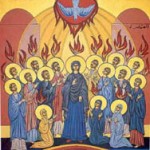
Ten days after Jesus ascended into heaven, the twelve apostles, Jesus’ mother and family, and many other of His disciples gathered together in Jerusalem for the Jewish harvest festival that was celebrated on the fiftieth day of Passover. While they were indoors praying, a sound like that of a rushing wind filled the house and tongues of fire descended and rested over each of their heads. This was the outpouring of the Holy Spirit on human flesh promised by God through the prophet Joel (Joel 2:28-29). The disciples were suddenly empowered to proclaim the gospel of the risen Christ. They went out into the streets of Jerusalem and began preaching to the crowds gathered for the festival. Not only did the disciples preach with boldness and vigor, but by a miracle of the Holy Spirit they spoke in the native languages of the people present, many who had come from all corners of the Roman Empire. This created a sensation. The apostle Peter seized the moment and addressed the crowd, preaching to them about Jesus’ death and resurrection for the forgiveness of sins. The result was that about three thousand converts were baptized that day. (You can read the Biblical account of Pentecost in Acts 2:1-41).
THE HOLY TRINITY.
A Summary Statement of Belief
- Lutherans confess (to declare faith in, or adherence to) the faith of the apostolic Christian Church as it is taught in the three Ecumenical (Universal) Creeds, Apostles’, Nicene, and Athanasian. Namely, that there is only one true God, and yet in this one God there are three persons: the Father, the Son (Jesus Christ), and the Holy Spirit.
 Where is the ‘Trinity’ found in the Bible?Â
Where is the ‘Trinity’ found in the Bible? - Lutherans confess that all are conceived and born sinful, standing under God’s wrath and are unable to save themselves.
 - Lutherans confess that God the Son was born of the virgin Mary. This Jesus Christ, who is true God and true man, died on the cross and rose to life again in order to save the world from God’s wrath. He ascended into heaven and we now wait for Him to return on the Last Day to judge both the living and the dead.
 - Lutherans confess that we are saved by God’s grace, for Christ’s sake, through faith alone.
 - Lutherans confess that this saving faith comes to us as Gods free gift through the work of the Holy Spirit as Christ’s Church proclaims the Gospel and administers the Sacraments (Baptism and the Lord’s Supper).
